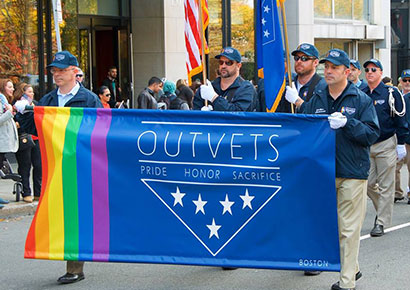Gay military veterans allowed to march in parade after mayor’s boycott threat
 Attempts by homophobes to ban gay military veterans from marching in Boston’s famous St. Patrick’s Day parade have been thwarted.
Attempts by homophobes to ban gay military veterans from marching in Boston’s famous St. Patrick’s Day parade have been thwarted.
On Wednesday, OUTVETS announced that it had been unexpectedly denied entry into the 116-year-old procession by the organisers, the South Boston Allied War Veterans Council.
“This is a sad day for the LGBTQ community and for Veterans of all backgrounds,” said OUTVETS. “We served our country with honour and distinction. But even after bringing honor to this parade, this community, and to all those who have served, we fight every day to be treated with the basic dignity that comes with service to country.”
While the relationship between the two groups has been difficult in the past, the gay veterans had been allowed to take part in the previous two years. There had been a number of humiliating restrictions, however, including placing OUTVETS at the back of the parade.
News of this week’s outright ban led to an outpouring of supports for the gay group, including threats by some politicians, such as Boston Mayor Marty Walsh, to boycott the event.
“I will not tolerate discrimination in our city of any form,” Walsh said in a statement. “We are one Boston, which means we are a fully inclusive city.”
The parade was also faced with corporate sponsors threatening to pull out of the parade. The organisers then attempted to offer a compromise, allowing the gay entrants to march as long as they did so without any rainbow flags, which the group refused.
Finally, another meeting was held on Thursday night in which the South Boston Allied War Veterans Council reversed its position and invited OUTVETS to permanently take part, without any conditions or restrictions.
The group accepted and welcomed the invitation. “We look forward to marching proudly on March 19th and honouring the service and sacrifice of those brave men and women who have given so much for our country,” said OUTVETS in a statement.
St. Patrick’s Day parades in the US are a celebration of Irish culture and heritage and are often closely tied to catholic organisations. In 1995, the US Supreme Court ruled that St. Patrick’s Day parades run by private organisations or companies are allowed to discriminate in their participation rules.
Leave a Reply